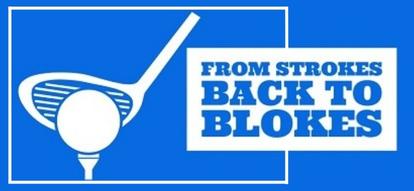Life after a brain injury often involves a lot of hurdles. But fortunately, some of these life hurdles can be made easier with the support of a particular friend or family member. This support can come in the form of rehabilitation, socialisation support, advocacy, or companionship. And is vital in the recovery journey that stroke and brain injury survivors have to go on, to get their life back on track.
1) How to best assist someone who has had a brain injury.
A keyway to assist someone who has had a brain injury is to help them create value in their life. A way to do this is to start with something achievable. And to start with smaller/manageable goals. Something that would fill their cup. This can come in the form of volunteering, or through community involved socialisation such as walking events, fundraising BBQs, and charity concerts/ fundraising events. This is important as it helps with higher level communication/social skills. As in what to do and what to say in different social situations and helps the brain injury survivor find their purpose.
2) How to find a compatible support group for someone who has had a brain injury.
Having a community of people who are going through the same things as you, and can relate to your recovery journey, is critical during brain injury recovery. That is why we cannot recommend support groups enough. When trying to find a compatible support group there are many different aspects to consider. Some of these factors are interests, ability, language, age group, care needs, level of activity, and distance needed to travel. These are all important considerations when looking into joining a support group.
3) How to increase community engagement and be of assistance for a brain injury sufferer.
When trying to assist someone in their post brain injury life, it is important to be the person they feel comfortable with in a new environment. For example, this would involve you helping to make them feel more comfortable when talking to others. This is an important role, as it helps with boosting their confidence. As they know that if they get stuck with anything you are there to back them up. But in being their back up conversationalist, it is important to note when to talk less, and not finish their sentences for them.
4) Identifying barriers to a better life and addressing those concerns with the right people and organisations.
By identifying barriers to recovery, we can hopefully troubleshoot some of the issues that brain injury sufferers encounter in their recovery journey. One of these large barriers is social skills. As after an injury or accident brain injury survivors can be left second guessing their conversations with others, and whether or not they have said the right thing. For example, brain injury survivors might interpret, and react to situations differently within real life, then in the textbook example of what to expect, and often can be more uncomfortable and challenging socially for stroke survivors to fit in, and feel heard, and not judged in a social environment. That is why having somebody there as social support is so crucial, because if a stroke survivor has misspoken, having somebody there to quickly course correct the information, can help a conversation flow better, and make more sense.
5) How to be a personal advocate for someone who has had a brain injury and not take over.
A keyway to not take over, is to listen to the questions/problems the brain injury survivor states they have and suggest a course of action. This is important as it provides a practical guide they can follow, and an actionable plan. During this planning it is also important to maybe let them know that they might suffer minor setbacks during their journey, but that this can be a good thing as well. People with brain injuries see, persevere and react differently than would normally be expected. It depends on their triggers and their environment but knowing these things can help a brain injury survivor.
To summarise, hopefully these five practical ideas can help those who are caring for someone with a brain injury help get the community support and services they need. And ideally, we would hope that this list has given carers/support workers and family members an insight into how to best be an advocate for someone who has had a brain injury.
Image References:
Image 1: Pexel, Kampus Production, 2021, date accessed 5/10/2023
Free Stock Photos, Royalty Free Stock Images & Copyright Free Pictures · Pexels

